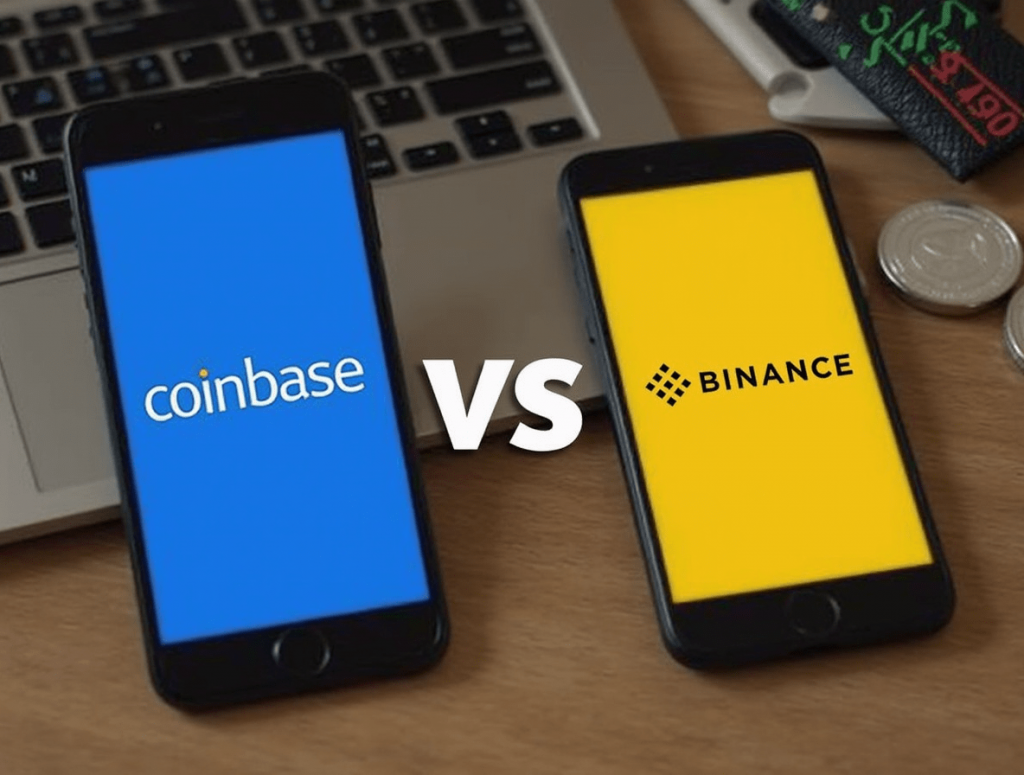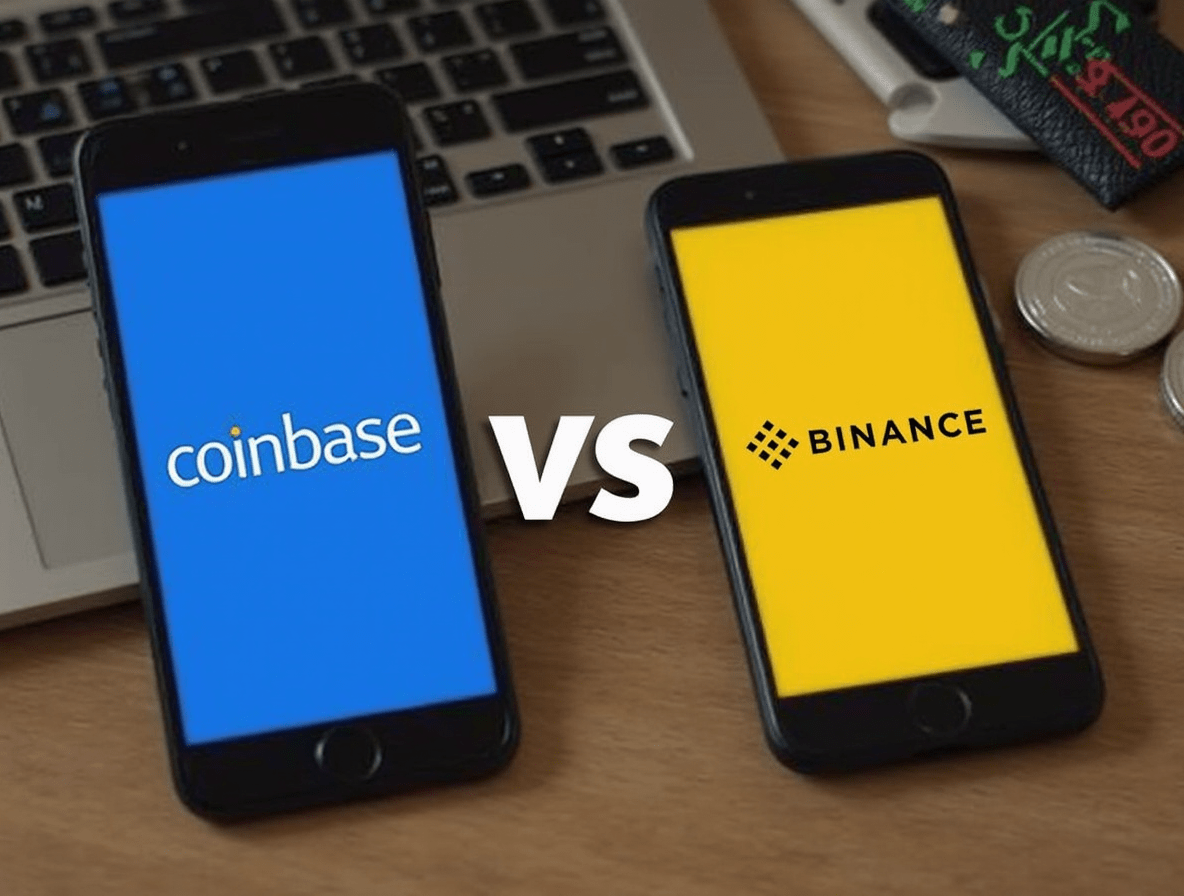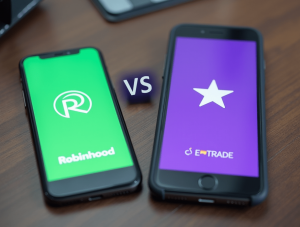
Which Cryptocurrency Exchange is Safer?
Did you know that over $3.8 billion in cryptocurrency was stolen through various hacks and scams in 2023 alone? As digital assets continue to gain mainstream adoption, choosing a secure exchange has never been more critical for protecting your investments.
If you’re deciding between Coinbase and Binance – two of the world’s largest cryptocurrency exchanges – security should be your primary concern. Both platforms handle billions in daily trading volume, but they differ significantly in their approach to user protection, regulatory compliance, and risk management.
In this comprehensive comparison, we’ll analyze the security features, regulatory status, and track records of both exchanges to help you make an informed decision about where to trade cryptocurrency safely in 2025.
Security Features: How Coinbase and Binance Protect Your Assets
Custody Solutions and Asset Storage
Coinbase Security Approach: Coinbase has established itself as an industry leader in secure asset storage with its multi-layered approach:
- 98% of customer funds stored in cold wallets (offline storage disconnected from the internet)
- Geographically distributed physical vaults with military-grade encryption
- $250,000 FDIC insurance on USD balances for U.S. customers
- Additional commercial crime insurance for digital assets held in hot wallets
- Mandatory whitelisting for cryptocurrency withdrawals
Coinbase’s custody solution is SOC 1 Type 2 and SOC 2 Type 2 certified, reflecting rigorous independent security audits. The exchange has never experienced a significant hack of its core infrastructure, which speaks volumes about its security practices.
Binance Security Approach: Binance employs a robust security framework with several notable features:
- SAFU Fund (Secure Asset Fund for Users) – a dedicated emergency insurance fund worth over $1 billion
- Cold storage for approximately 90% of user assets
- Advanced AI-powered risk monitoring systems
- Hardware-based two-factor authentication
- Address whitelisting and withdrawal locks
However, Binance has experienced security incidents in the past, including a 2019 breach that resulted in the theft of 7,000 Bitcoin (worth approximately $40 million at the time). While the exchange covered all losses through its SAFU fund, such incidents raise questions about its infrastructure security.
User-Level Security Features
Both exchanges offer similar security tools at the account level, but with some important differences:
Coinbase:
- Biometric authentication options
- Device verification requirements
- Mandatory 2FA for all accounts
- Time-delayed withdrawals
- Account activity monitoring with suspicious login alerts
- Insurance coverage for account compromises in certain situations
Binance:
- Optional 2FA (not mandatory for all functions)
- Anti-phishing code feature
- Device management tools
- Address management system
- Withdrawal address whitelisting
- Risk management systems that flag unusual activities
While both platforms provide robust tools, Coinbase’s mandatory security measures give it a slight edge in protecting less technically-savvy users who might not enable optional security features.
Regulatory Compliance and Oversight
The regulatory environment surrounding cryptocurrency exchanges has direct implications for user safety and asset protection.
Coinbase: The Regulation-First Approach
Coinbase has consistently positioned itself as the regulation-friendly exchange:
- Publicly-traded company on NASDAQ (COIN)
- Licensed in all 50 U.S. states
- Registered Money Services Business with FinCEN
- Bitlicense holder in New York (one of the most stringent regulatory frameworks)
- Full compliance with AML/KYC regulations globally
- Regular financial audits as a public company
- Transparent quarterly financial reporting
This regulatory compliance creates accountability and transparency that directly benefits users. As a publicly-traded company, Coinbase faces severe consequences for mismanagement or security failures.
Binance: Evolving Regulatory Status
Binance has had a more complicated relationship with regulators:
- Initially operated without a fixed headquarters to minimize regulatory exposure
- Has faced regulatory challenges in multiple jurisdictions including the UK, Japan, and Italy
- Established Binance.US as a separate entity to serve U.S. customers under stricter regulations
- Recently settled with the U.S. Department of Justice for $4.3 billion over AML violations
- Has made significant strides in improving compliance in recent years
- Current leadership has pivoted toward a more regulation-friendly approach
While Binance has made progress in addressing regulatory concerns, its history raises questions about its commitment to compliance, which is an essential component of exchange security.
Historical Security Record and Incident Response
Past security incidents provide valuable insight into how exchanges handle crises and protect user assets.
Coinbase’s Security Track Record
- No major hacks of Coinbase’s core infrastructure in its 12+ year history
- Some individual accounts have been compromised through phishing and SIM swapping (typically user-side vulnerabilities)
- Strong incident response protocols with transparent communication
- Regular security audits by third-party firms
- Bug bounty program that has paid out millions to white-hat hackers
Binance’s Security History
- 2019: 7,000 BTC stolen through a sophisticated attack that compromised API keys
- Multiple smaller security incidents involving specific tokens
- Rapid response to security breaches with complete reimbursement of affected users
- Significant investment in security infrastructure following incidents
- Implementation of advanced threat detection systems
Both exchanges have demonstrated a commitment to making users whole after security incidents, but Coinbase’s cleaner record suggests stronger preventative measures.
Transparency and Communication
How exchanges communicate about security practices and incidents directly impacts user trust and safety.
Coinbase:
- Detailed security documentation available to users
- Transparent incident reporting
- Regular security advisories and educational resources
- Clear communication during outages or system maintenance
- Public security roadmap
Binance:
- Less detailed documentation about specific security practices
- Comprehensive post-mortem reports after incidents
- Regular security updates on the official blog
- Sometimes delayed communication during critical incidents
- Extensive security education resources
Coinbase generally provides more transparency around its security infrastructure, which allows users to make more informed decisions about their risk exposure.
Expert Analysis: Which Exchange Offers Better Security in 2025?
Industry security experts generally agree that both exchanges offer adequate security for most users, but with different strengths and weaknesses:
“Coinbase’s regulatory-first approach provides institutional-grade security with the tradeoff of higher fees, while Binance offers more features and lower costs but with slightly elevated regulatory risk,” explains Alex Moskov, cryptocurrency security analyst.
Cryptocurrency security researcher Rachel Morton adds, “For U.S.-based users primarily concerned with security over features or trading costs, Coinbase currently represents the safer option due to its regulatory clarity, insurance protections, and clean security record.”
Making Your Decision: Security Factors to Consider
When evaluating which exchange is safer for your specific needs, consider these factors:
- Geographic location: Your country of residence affects which exchange offers better regulatory protection.
- Investment size: Larger holdings may benefit from Coinbase’s insurance and regulatory protections.
- Trading frequency: Active traders might accept Binance’s slightly higher security risk for lower fees.
- Technical expertise: Less experienced users may benefit from Coinbase’s mandatory security features.
- Asset types: Consider which platform better secures the specific cryptocurrencies you trade.
Conclusion
When it comes to security, both Coinbase and Binance offer robust protections, but with different approaches and tradeoffs. Coinbase provides stronger regulatory compliance, mandatory security features, and an unblemished security record, making it generally the safer choice for security-focused users, particularly in the United States. However, this comes with higher fees and fewer advanced trading features.
Binance offers competitive security measures with its SAFU fund and advanced threat detection, but its regulatory challenges and past security incidents create slightly elevated risk. For users outside the U.S. who prioritize lower fees and more extensive trading options, Binance may be acceptable if proper account security measures are implemented.
The safest approach for serious cryptocurrency investors remains using regulated exchanges for fiat conversions and trading while storing long-term holdings in personal hardware wallets, regardless of which exchange you choose.
Frequently Asked Questions
Has Coinbase ever been hacked?
Coinbase has never suffered a direct breach of its core infrastructure. However, individual Coinbase accounts have been compromised through phishing attacks, SIM swapping, and other user-side vulnerabilities.
Is Binance safe for U.S. customers?
U.S. customers must use Binance.US, a separate entity operating under U.S. regulations. While Binance.US offers fewer features than the international platform, it provides additional regulatory protections for American users.
Do both exchanges offer insurance for crypto assets?
Coinbase provides FDIC insurance for USD balances (up to $250,000) and commercial crime insurance for hot wallet storage. Binance maintains the SAFU fund, which acts as self-insurance against potential breaches but isn’t a traditional insurance policy.
Which exchange has better customer support for security issues?
Coinbase generally receives higher ratings for customer support responsiveness, particularly for account security issues. Both exchanges have been criticized during high-volume periods for delayed support responses.
Can I use a hardware wallet with both exchanges?
Yes, both Coinbase and Binance support withdrawals to hardware wallets, which remains the safest approach for long-term cryptocurrency storage.
Which exchange has stricter KYC requirements?
Coinbase implements stricter KYC procedures at account creation, while Binance has traditionally used a tiered approach where full verification is only required for higher withdrawal limits.














